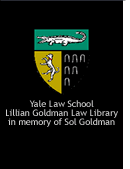
 |
 |
- produced by Tara Helfman & Boris Sokurov This film presents an anatomy of the Truth and Reconciliation Commission, explaining its composition, its membership and its goals. Through firsthand accounts by the people who were most involved in the TRC, this film explores the Commission’s development, achievements, and limitations. It concludes with an examination of the profound controversy to which the proceedings gave rise, leaving the viewer with the lingering question: to what extent did the Truth and Reconciliation Commission actually achieve truth and reconciliation? This film presents an institutional overview of the TRC and its objectives, illustrating the achievements, limitations, and even contradictions inherent in the institution. It documents how, through the Truth and Reconciliation Commission, South Africa attempted to reckon with her tortured past and help the nation make a peaceful transition into a culture of social unity, racial equality and respect for human rights. The presentation consists of six segments: 1. The Structure of the TRC: This segment presents an overview of the three committees that make up the TRC, the Human Rights Violations Committee, the Amnesty Committee, and the Reparations and Rehabilitation Committee. 2. The Human Rights Violations Committee: This segment explores the work of the Human Rights Violations Committee, focusing in particular on the TRC’s Special Hearings on Violence against Children. Children’s Rights advocate Graca Machela discusses the pervasiveness of violence committed against and by children during the apartheid era, and explains the role of the TRC in confronting those abuses and attempting to heal their long-term effects. 3. The Investigative Unit: This segment illustrates the work of the TRC’s Investigate Unit, itself a division of the Human Rights Violations Committee. It examines the grim role of the Unit in uncovering material evidence of human rights abuses, and locating the bodies of the victims of atrocities. The film follows one such investigation, which led to the discovery of the charred remains of two ANC members. 4. The Reparations and Rehabilitation Committee: This segment illustrates the means by which the TRC sought to provide for South Africa’s future as well as her past. Members of the Reparations and Rehabilitation Committee discuss the financial, therapeutic and educational services provided to victims of human rights abuses in order to help build a better future for them and a culture of human rights for South Africa as a whole. Of particular interest is an interview with Judge Albie Sachs, who discusses the importance of memorials and remembrance to a nation’s recovery from past trauma. 5. The Amnesty Committee: This segment discusses the purpose and conditions of amnesty in the TRC. However, its focal point is the case of P. W. Botha, whose strident defiance of a subpoena for testimony before the TRC constituted one of the most dramatic (if not tragicomic) moments in the life of the Commission. 6. Perspectives on the TRC: This segment presents firsthand accounts by TRC commissioners and former collaborators in the apartheid regime of their opinions of the Commission and its reception by South Africa as a whole. The segment illustrates that, notwithstanding the Commission’s intention to cultivate national unity, it also proved a deeply divisive institution.
|
|
Biography Tara Helfman Tara is a member of the class of 2006 at Yale Law School. She is concurrently pursuing a Ph.D. in Law and Society at New York University. After graduating from Queens College, City University of New York, she spent three years in England on a British Marshall Scholarship. She has acted as a research assistant in the Nigeria/Cameroon and El Salvador/Honduras boundary disputes before the International Court of Justice. Among her current research interests is the manner in which post-conflict societies employ judicial and quasi-judicial institutions to come to terms with past crimes.
|
|
| Return to Multimedia Page | List of Websites | Bibliography |
|